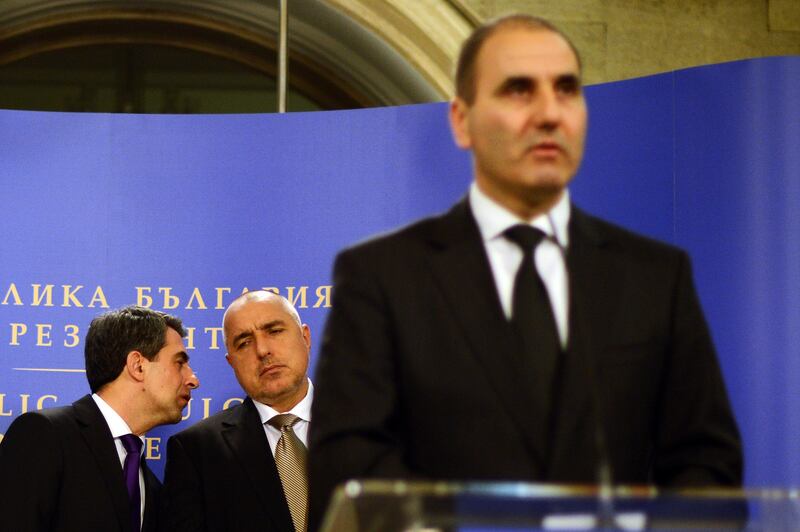For years, European countries pushed off the issue of adding Hezbollah to the European Union’s list of banned terrorist groups, citing the fact that the group had not carried out terrorist attacks on the continent since the 1980s. Sure, it raised funds across the continent hand-over-first, and provided logistical support to operatives carrying out attacks elsewhere, but that fell below the European threshold of bombs exploding in Europe. But investigations in Bulgaria and Cyprus have now forced reluctant European leaders to seriously debate the issue of banning Hezbollah, in whole or in part, and that has Hezbollah deeply concerned.

For Nasrallah, the Bulgarian findings are surely disconcerting enough. According to Bulgarian authorities, two of the three suspects in the July bus bombing that killed five Israelis and a Bulgarian were men with Canadian and Australian passports who "belonged to the military formation of Hezbollah." Investigators traced the suspects' activities around the world, uncovering "information about financing and their membership in Hezbollah."
This was not the first Hezbollah plot in Bulgaria. A similar plot targeting Israeli tourists in Bulgaria was thwarted a few months earlier, in January, just weeks ahead of the anniversary of the assassination of Hezbollah terrorist chief Imad Muighniyeh, when a suspicious package was spotted on a bus carrying Israeli tourists from Turkey to Bulgaria. In fact, Western intelligence officials had long worried about Bulgaria as a potential venue for Hezbollah or Qods Force attacks. Five years earlier, Western intelligence agencies concluded “that Hezbollah chiefs and Iranian intelligence officials had put Bulgaria on a list of nations propitious for developing plots against Western targets.”
ADVERTISEMENT
The Bulgarian case has Hezbollah plenty worried. In the past, when accused of executing terrorist attacks Hezbollah leader Hassan Nasrallah has convened a press conference to denounce that charges—whatever they may be—as American-Zionist conspiracies aimed at undermining the party’s legitimate “Islamic resistance.” Such was the case when a U.N. tribunal indicted four Hezbollah operatives for the murder of former Lebanese Prime Minister Rafiq Hariri. But Hezbollah was not so bold this time. In a speech timed to mark the anniversaries of famous slain Hezbollah militants, Nasrallah’s only comment on the Burgas investigation was a passing non-comment: “I don't want to comment on the Bulgarian accusation. This issue is being looked at in a patient and calm manner and we will see later how to deal with it depending on the outcome.” His only substantive comment was to warn of Hezbollah’s capabilities to strike at Israel should Jerusalem choose to attack Hezbollah in Lebanon in retaliation. Under severe pressure at home over Hezbollah’s activities in Syria, and exposed abroad by Bulgarian investigators, Nasrallah chose to err on the side of caution. One reason for his restraint might have been concern over what he knew was coming next: disclosure of yet another Hezbollah plot in Europe, this one involving a European Hezbollah operative.
Just days before the Burgas bombing, Cypriot authorities arrested Hossam Taleb Yaakoub—who has since described himself in court as a Hezbollah operative—in an eerily similar plot. Yaakoub testified that he conducted surveillance of Israeli tourists arriving on the island nation on flights from Israel and took note of the buses they boarded to their hotels. Cypriot police tracked the suspect before arresting him, and found in his possession information on arriving Israeli flights and buses taking Israeli tourists to their hotels.
Though he initially denied ties to Hezbollah, Yaakoub later admitted being a Hezbollah operative sent to Cyprus to conduct surveillance for Hezbollah. Just four hours after insisting to police he was just in Cyprus on business, Yaakoub sat back down and told police, “I did not tell the whole truth.” He claimed he did not know what his reconnaissance was for, but knew “something weird was going on” and speculated it was “probably to bring down a plane, but I don’t know, I just make assumptions.” Later, he put it to police differently: he was not part of a terrorist plot in Cyprus at all: “it was just collecting information about the Jews, and this is what my organization is doing everywhere in the world.”
Further underscoring the European bent to the case, Yaakoub admitted that before sending Him to Cyprus, first to create a cover story and then to conduct surveillance, Hezbollah initially used him as a courier to deliver or retrieve packages to or from Hezbollah operatives in places like Turkey, the Netherlands, and France. His trial is due to end next month and, unlike the Bulgarian case, the evidence in Cyprus—which has undergone full judicial scrutiny and cross-examination—is a matter of public record. The public airing of evidence presented in court so far, and the prospect of a conviction in that case, has Hezbollah doubly worried.
Taken together, the Bulgarian and Cypriot cases present compelling evidence of Hezbollah's continued operational activity in Europe. No wonder Nasrallah is nervous. There is broad consensus now that Hezbollah is present in Europe, where it is raising funds, recruiting operatives, and plotting attacks. In Bulgaria, Hezbollah killed six innocents. In Cyprus, a European Hezbollah operative prepared for a parallel attack there. Nasrallah's non-statement on these cases suggests Hezbollah feels the charges cannot be summarily ignored. European leaders should feel the same: their own litmus test has now been past in spades. Hezbollah is, once again, trying to blow things up in Europe.







